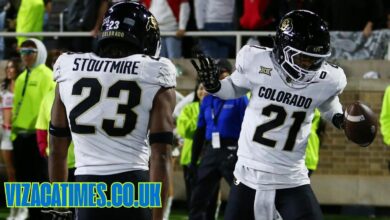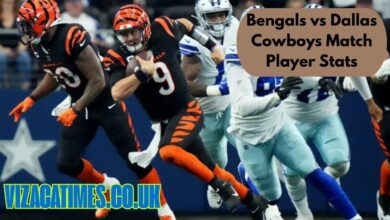Michael Edwards Liverpool, ?? – The Man Behind Liverpool’s Transformational Era
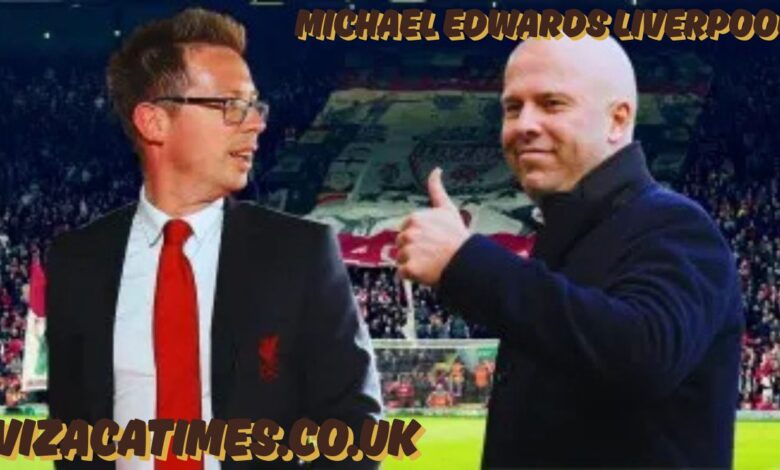
Introduction to Michael Edwards Liverpool, ??
In the world of football, where managers, players, and results dominate headlines, few behind-the-scenes figures make a lasting mark. Yet when we talk about “Michael Edwards Liverpool, ??,” we’re talking about one of the most influential architects of modern success at Anfield. Michael Edwards, the mastermind behind some of Liverpool’s most transformative transfer windows and strategic decisions, has become a legend in his own right within the club’s inner sanctum.
As Liverpool Football Club navigated the turbulent waters of modern football, financial constraints, and a hyper-competitive Premier League, it was Edwards who kept the ship not only afloat but steering towards glory. His journey, contributions, and decisions have reshaped the club from top to bottom.
The Rise of Michael Edwards at Liverpool
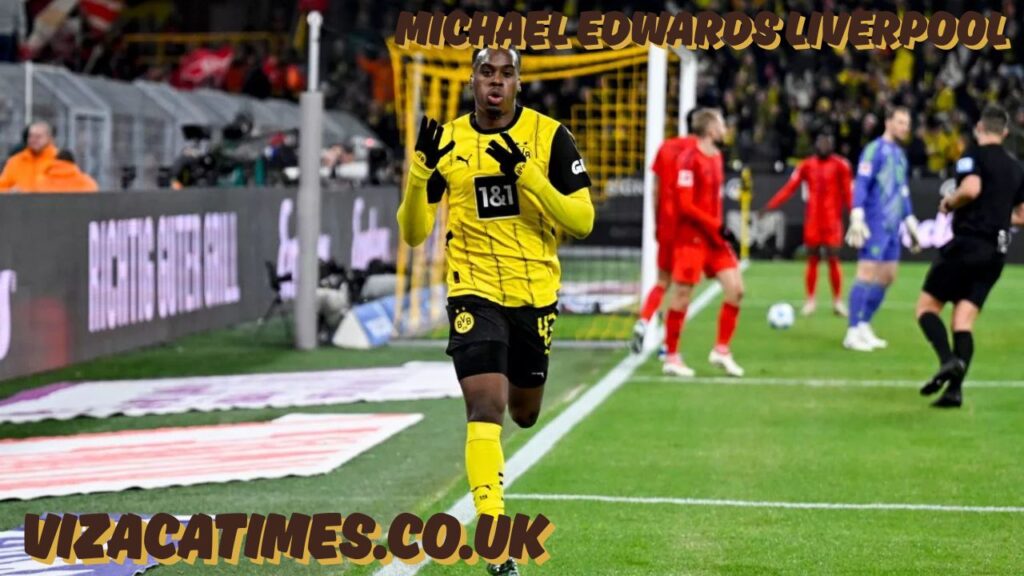
Michael Edwards’ journey with Liverpool began in 2011, initially joining as Head of Analytics. From the outset, his methodical, data-driven approach differentiated him from the more traditional football minds. He wasn’t an ex-player or a charismatic pundit turned executive. Edwards was a stats-savvy, computer-literate analyst who brought a new-age vision to the recruitment process.
By November 2016, Edwards had risen to the role of Sporting Director—a pivotal appointment that coincided with a significant turning point in Liverpool’s trajectory. The partnership between Edwards and manager Jürgen Klopp became one of the most effective manager-executive alliances in the Premier League.
Mastering the Transfer Market
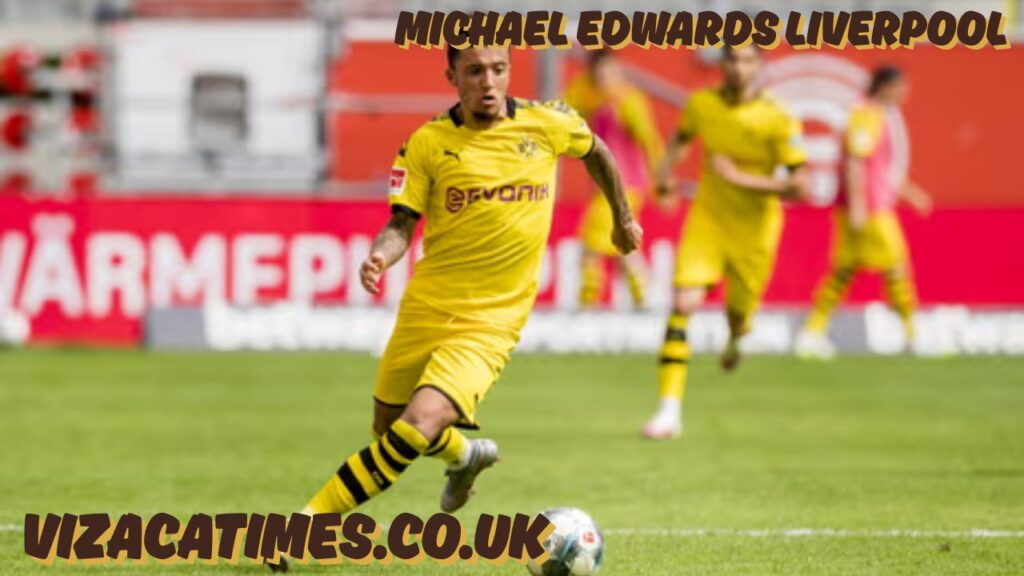
One cannot mention “Michael Edwards Liverpool, ??,” without diving deep into his exceptional record in the transfer market. Under his stewardship, Liverpool managed to build a world-class squad through intelligent spending, selling at the right time, and identifying talent that others overlooked.
Key Signings Under Edwards:
- Mohamed Salah (from Roma): Acquired for just over £34 million, Salah went on to become a Premier League icon.
- Virgil van Dijk (from Southampton): A bold £75 million signing that completely transformed Liverpool’s defense.
- Alisson Becker (from Roma): Another game-changing acquisition that stabilized Liverpool’s goalkeeping department.
- Andy Robertson (from Hull City): Bought for £8 million, Robertson became one of the best left-backs in world football.
What made Edwards stand out wasn’t just the ability to sign great players, but to do so in a financially sustainable way. His calculated risks and long-term vision ensured the squad was not only talented but cohesive.
Selling Smart: A Forgotten Strength
Equally crucial in “Michael Edwards Liverpool, ??,” was his knack for making profitable sales. Under Edwards, Liverpool managed to offload fringe players and academy products for impressive fees. Whether it was selling Philippe Coutinho to Barcelona for £142 million or turning Dominic Solanke and Rhian Brewster into multi-million-pound departures, Edwards made sure every move added value.
This strategy ensured Liverpool reinvested funds into core squad improvements while keeping the wage bill and net spend in check. It allowed the club to remain competitive without risking financial ruin—a balance many clubs struggle to achieve.
Edwards and Klopp: The Silent Power Duo
The working relationship between Michael Edwards and Jürgen Klopp was one of mutual respect and collaboration. Edwards didn’t interfere with on-pitch matters but supported Klopp with tools, data, and players who fit his philosophy. This harmony allowed Klopp to focus on management while Edwards ensured that he had the right arsenal at his disposal.
Unlike other clubs plagued with internal power struggles between coaches and directors, “Michael Edwards Liverpool, ??,” exemplified how alignment and trust can produce extraordinary results.
The Analytics Revolution at Anfield
A pivotal element of Michael Edwards’ tenure was his emphasis on data and analytics. Liverpool became one of the pioneers in leveraging sports science and statistical modeling to make football decisions.
The club established a comprehensive scouting and analytics department under Edwards’ guidance, with tools capable of measuring pressing patterns, passing networks, and injury likelihood. This analytical backbone not only influenced signings but also shaped the club’s style of play and long-term strategies.
Achievements That Speak Volumes
“Michael Edwards Liverpool, ??,” is synonymous with a period of unprecedented success. Under his administrative guidance, Liverpool clinched the following honors:
- UEFA Champions League (2019)
- FIFA Club World Cup (2019)
- UEFA Super Cup (2019)
- Premier League (2019–20) – ending a 30-year title drought
These accolades were not coincidental; they were the result of meticulous planning, player recruitment, and team cohesion—all orchestrated from behind the curtain by Edwards.
Departure and Legacy
In 2021, Michael Edwards announced that he would step down as Sporting Director at the end of the season. His decision was met with widespread praise and a tinge of sadness from fans and staff alike. By the time he left in 2022, his legacy was firmly etched in Anfield history.
His departure was not seen as a vacuum but as a moment of celebration for a job exceptionally done. Liverpool, under his watch, had become a model club—respected globally for its smart operations and footballing success.
Michael Edwards’ Return to Liverpool in 2024
In a dramatic and welcome twist, 2024 saw “Michael Edwards Liverpool, ??,” take on a new chapter. Amid changes in leadership and renewed ambitions, Edwards returned—not as Sporting Director but as the club’s CEO of Football, granting him even broader influence.
This move signaled Liverpool’s intent to return to strategic excellence. With Edwards back in the fold, fans and analysts alike anticipated another era of success and smart management.
FAQs on Michael Edwards Liverpool, ??
Q: What was Michael Edwards’ biggest achievement at Liverpool?
A: Arguably, building a Champions League and Premier League-winning squad through intelligent recruitment and sustainable operations.
Q: Why did Michael Edwards leave Liverpool in 2022?
A: He stepped down after over a decade at the club, citing the need for a break and to pursue new challenges. His departure was planned and on good terms.
Q: Has Michael Edwards returned to Liverpool?
A: Yes, in 2024, Edwards returned in a senior executive capacity as CEO of Football, signaling a renewed era of structure and vision at the club.
Q: What made Michael Edwards’ transfer strategy so successful?
A: A combination of data-driven scouting, risk management, and understanding of Klopp’s tactical needs allowed Edwards to sign players who made immediate and long-term impact.
Q: How did Michael Edwards impact Liverpool’s financial model?
A: He ensured Liverpool maintained a sustainable spending policy by balancing high-profile sales with effective, high-impact purchases, keeping the club competitive without overspending.
Final Thoughts on Michael Edwards Liverpool, ??
The story of “Michael Edwards Liverpool, ??,” is more than just a narrative about a Sporting Director. It’s about vision, strategy, patience, and an unshakable commitment to building a footballing dynasty the right way. While managers and players come and go, Michael Edwards has shown that those who work behind the scenes often wield the quiet power to change a club’s destiny.
Also Read : Jon McCarthy, ?? — The Many Dimensions of Jon McCarthy Explored in Depth


